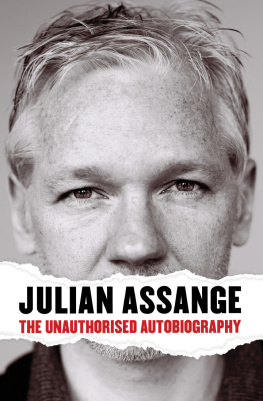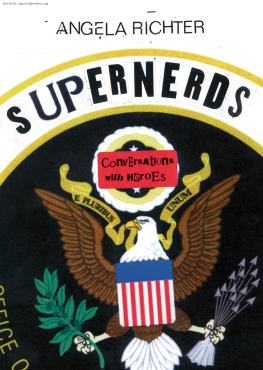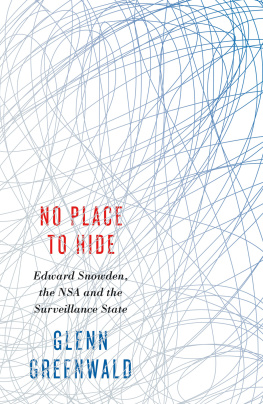Stanford University Press
Stanford, California
English translation 2017 by the Board of Trustees of the Leland Stanford Junior University. All rights reserved.
The Art of Revolt: Snowden, Assange, Manning was originally published in French in 2015 under the title Lart de la rvolte: Snowden, Assange, Manning Librairie Arthme Fayard 2015.
No part of this book may be reproduced or transmitted in any form or by any means, electronic or mechanical, including photocopying and recording, or in any information storage or retrieval system without the prior written permission of Stanford University Press.
Printed in the United States of America on acid-free, archival-quality paper
Library of Congress Cataloging-in-Publication Data
Names: Lagasnerie, Geoffroy de, author.
Title: The art of revolt : Snowden, Assange, Manning / Geoffroy de Lagasnerie.
Other titles: Art de la rvolte. English
Description: Stanford, California : Stanford University Press, 2017. | Translation of: Lart de la rvolte. | Includes bibliographical references.
Identifiers: LCCN 2016059143 (print) | LCCN 2017006514 (ebook) | ISBN 9781503600010 (cloth : alk. paper) | ISBN 9781503603325 (pbk. : alk. paper) | ISBN 9781503603240 (e-book)
Subjects: LCSH: Government, Resistance to. | Snowden, Edward J., 1983 | Assange, Julian. | Manning, Chelsea, 1987 | WikiLeaks (Organization)
Classification: LCC JC328.3 .L3313 2017 (print) | LCC JC328.3 (ebook) | DDC 303.6/10922dc23
LC record available at https://lccn.loc.gov/2016059143
Typeset by Bruce Lundquist in 10/15 Adobe Garamond Pro
THE ART OF REVOLT
SNOWDEN, ASSANGE, MANNING
GEOFFROY DE LAGASNERIE
STANFORD UNIVERSITY PRESS
STANFORD, CALIFORNIA
CONTENTS
INTRODUCTION
SOMETHING IS HAPPENING
ONLY RARELY does something new emerge in the political sphere. Of course, this is not to say that radical questions or movements arise infrequently. By good fortune, new matters of contestation, new sources of outrage, and therefore new battles unfold without end in the social world. As they do, they enlarge the sphere of liberty, equality, and social justice for each one of us.
All the same, the proliferationthe sheer numberof fields of engagement cannot hide the fact that most of the time such mobilization takes place within standing traditions. Battles proceed according to established forms. In the main, the vocabularies, values, and objectives at stake are predetermined; they are not a matter of choice even for the actors themselves. Institutions structure the time and space of protest.
Paradoxically, perhaps, politics represents one of the most codified domains of social life. We live and come into our subjective own in a given environment. Political activity entails taking up preexisting forms, situating ourselves in an inherited framework, and negotiating with and within these structures in order to achieve a specific objective at a given moment. Strikes, demonstrations, petitions, lobbying, ). Even the most radical claims cannot escape these conditions, which mark out and define the terrain of democracy. It is by virtue of being inscribed in preexisting frames of contention that political action is evident as such; in accepting these frames, the subject stands as a citizen taking part in communal deliberation. Conversely, as soon as a struggle fails to bow to prescribed forms of expression, it proves controversial: debate arises about whether a given movement is criminal, terrorist, or political in nature.
By the same token, the framework that prevails in the political sphere permeates our minds and determines our ways of seeing. The difficulty of assigning a place to something new in the political realm may also be explained by the fact that, when a singular movement emerges, the odds are that it will not be recognized for what it is. Its specificity and unprecedented character derail categories of perception and therefore escape notice. Movements of this kind often wind up being explained, even by those actively pursuing them, by way of preexisting terminologies rather than being grasped as original.
Theoretical interpretations of political movements tend to take up a fixed vocabulary. Struggles are reinscribed in a history, a tradition; in consequence, the stakes are recoded to correspond to an existing paradigm. The stance adopted by intellectuals, philosophers, and even historians frequently leads to the colonization of struggles, in which an outdated structure is imposed on them. Against this propensity toward totalization, generalization, and universalization, critical analysis needs to operate in terms of singularity, specificity, and therefore rupture.
Novelty
The thesis I would like to advance is that we are now witnessing something emerging around the figures of Edward Snowden, Julian Assange, and Chelsea Manning. A new way of thinking and conducting politicsof conceiving forms and practices of resistanceis in the process of crystallizing. The battles currently taking shape around state secrets, mass surveillance, the protection of privacy, and civil liberties in the Internet age pose new problems. In the book at hand, they serve as the point of departure for critical reflection on the possibility of thinking and acting otherwise.
Snowden, Assange, and Manning should not be seen simply as whistle-blowers, whose activities involved the diffusion of information. They are much more than that. Here, they will be treated as activists, exemplary figures bringing a new political art into existence: a different way of understanding what it means to resist. Their actions, their very lives, express something that must be heard and heeded: the advent of a new political subject.
In other words, the cases of Snowden, Assange, and Manning do not just bring new political objectives to light. It is not simply a matter of new points of dissent arising and coming to occupy the public spotlight. Rather, what we are seeing are new modes of subjectification. These three figures are not just interrogating events within the political landscape and how those events unfold: they are throwing the political landscape itself into crisis.
Reaction
Indeed, how else can one even explain the violence of governmental responses to their actions other than in terms of the radical destabilization they have effected? Their activities (but also, it is important to note, the activities of other whistle-blowers and hackers who remain less well-known) have unleashed repressive measures of a rare intensity. Especially in the United States, the call for punishment has assumed unprecedented, extraordinary, and, all in all, fundamentally incomprehensible dimensions. The American justice system went after Manning simply for having published confidential documents, For having alerted the public to the National Security Agency (NSA)s (often illegal) surveillance programs involving mass monitoring of citizens the world over and of certain heads of state and diplomats, Edward Snowden was charged with espionage; he still faces the risk of a military trial and a lifelong prison sentence. The United States government has made every diplomatic effort to ensuring that he will not escape its justice by obtaining asylum in another country.
Whether in terms of rhetoric (cowards, enemies, spies, traitors, etc.), charges brought (treason, aiding and abetting the enemy), sentences sought and/or imposed, or conditions of detention, we are witnessing a veritable spectacle of the states repressive apparatus in all its uncompromising brutality. This penal violence and this disproportionate reaction are significant in their own right and should prompt us to ask about how the contemporary political and legal order operates. These repressive measures are not severe because the crimes are serious: they are severe because so-called whistle-blowers profoundly unsettle the legal and political regime, the framework of the state. (The situation may be understood in terms of how states are now reacting to the progressive erosion of national order and territorial sovereignty by ostentatiously building impressive ) The task, then, is to study this destabilization, its reasons and form, in order to grasp its true significance and dimensions.
Next page










